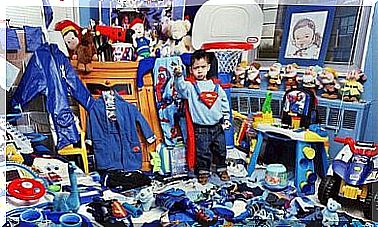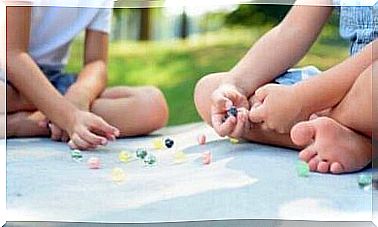If You Get Mad At Your Kids, These Questions Will Help You Think – Parenthood

Anger and frustration are human and universal emotions, but that doesn’t mean you have to be the victim of your own negative feelings. As adults, we have an obligation to prevent our emotions from taking hold of us and to be able to reflect on situations, with our family and with ourselves.
Let’s be honest… Being parents is difficult! When you just feel like going to the bathroom on your own or taking a shower for more than two minutes without hearing small footsteps approaching the shower and you never find time to yourself, it can be incredibly frustrating. .
You may also get annoyed after telling your child for the thousandth time to turn off the light when leaving a bedroom.
If you are frustrated you may be yelling at your kids without thinking
Many parents express their nervousness and frustration by yelling at their children. They don’t pause to think about what’s going on. It’s not necessarily because they want to, but sometimes they feel so overwhelmed that they lose control.
Often times, yelling can be easier than learning strategies to become a more peaceful parent.
Yelling at children makes them more aggressive, both physically and verbally. When a parent raises their voice and screams, it scares the children and makes them feel insecure.
Plus, it has long-term effects like anxiety, low self-esteem, and increased aggression. A parent who is at ease will be reassuring, and children will feel loved and accepted despite their bad behavior.
There are many questions to ask yourself when faced with a blood-boiling situation. Finding peace is possible! Learn to manage your anger and come to a peaceful solution using these questions as strategies for your internal change and improvement in your family situation.

Questions to think about and not express your anger negatively on your children
In the short term, exasperation is tempting. But giving in to anger can lead to even more challenges. Before you attack your children or take what you consider appropriate action, think about how things will be after the winds of anger have passed.
If you yell at your children, you will always regret it after the fact. It is therefore better to breathe deeply and reflect.
-
Do you know how to give yourself a waiting time?
Wait times aren’t just good for young children. Adults also need time to wait or take short breaks to calm down.
As you breathe deeply, give yourself a few minutes to allow sanity to come to your mind. You will be more peaceful and will be able to make the right decisions about the education of your children.
-
Is it so bad that your kids make mistakes every now and then?
When it is appropriate, let your family members get it wrong. It’s not your job to show someone they’re wrong, let them be wrong. If you have a strong desire to show them that they are doing things wrong, your ego is talking.
Of course, as a parent it is your job to show your children the difference between right and wrong. However, be aware that you will not be able to control their choices and that they will have to take responsibility for the consequences of their actions when they make mistakes in judgment.
-
Which do you prefer: to be happy or to be right?
Decide what is most important to you: to be happy or to be right. Many arguments are the result of a desire to be right. If you choose to be happy instead of winning every argument with your children, your life will be more enjoyable and you will become a more relaxed parent overall. So what is most important to you?
-
Do you know how to notice your anger before you think?
Take a minute to notice your nervousness. Instead of reacting without thinking about your frustration, take a moment to examine it. Imagine that you are the third witness to your irritation and annoyance.
What do you feel ? Where does the emotion come from in your body? Do you feel it in your head, in your chest or in your stomach? Has your breathing changed? Are your hands shaking? By disconnecting from your anger, you can gain a different perspective and weaken your negative emotions.
-
Why are you upset?
Ask yourself why you are upset. Has anyone physically harmed you? Disappointed you? Did not respect one of your values? Find out why you are frustrated and you can take the necessary steps to find a solution. The important thing is to know what is happening to you in order to find the solutions as soon as possible.

-
Do you know how to look for solutions and think?
Look for ways to try and feel better. By acting with anger, you try to make yourself feel better. Instead of yelling at your kids, for example, work together to find a peaceful solution.
The result will only be better and more worth it. You will all feel better and your children will not have an emotional injury that they will carry around with them all their lives.
-
Do you know any relaxation techniques?
Learn relaxation techniques. The more relaxed you are, the less nervous you will be and the less control you will lose. Relaxation techniques can also be helpful after an argument. Learn to calm yourself down. It is a skill that can be learned.
To think…
See your annoyance as an opportunity to find peace. Whenever you feel upset, see the situation as an opportunity to practice dealing with anger. Commit to dealing with this frustration attack better than last time around.
Avoid letting anger, frustration, and annoyance take hold of you. As a human being and a thoughtful parent, you have options available. Seek solutions and find peace instead of giving in to your immediate impulses, which only harm you and your family.









